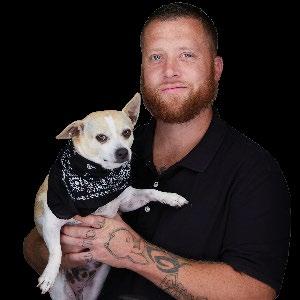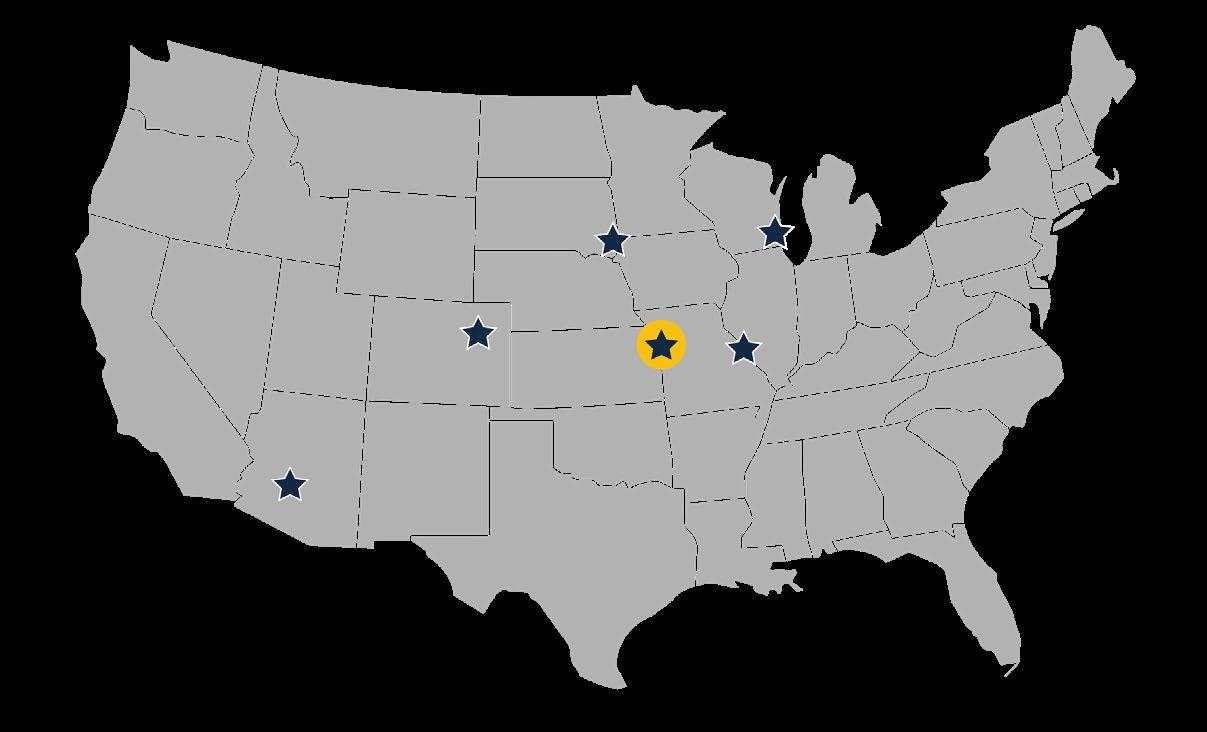






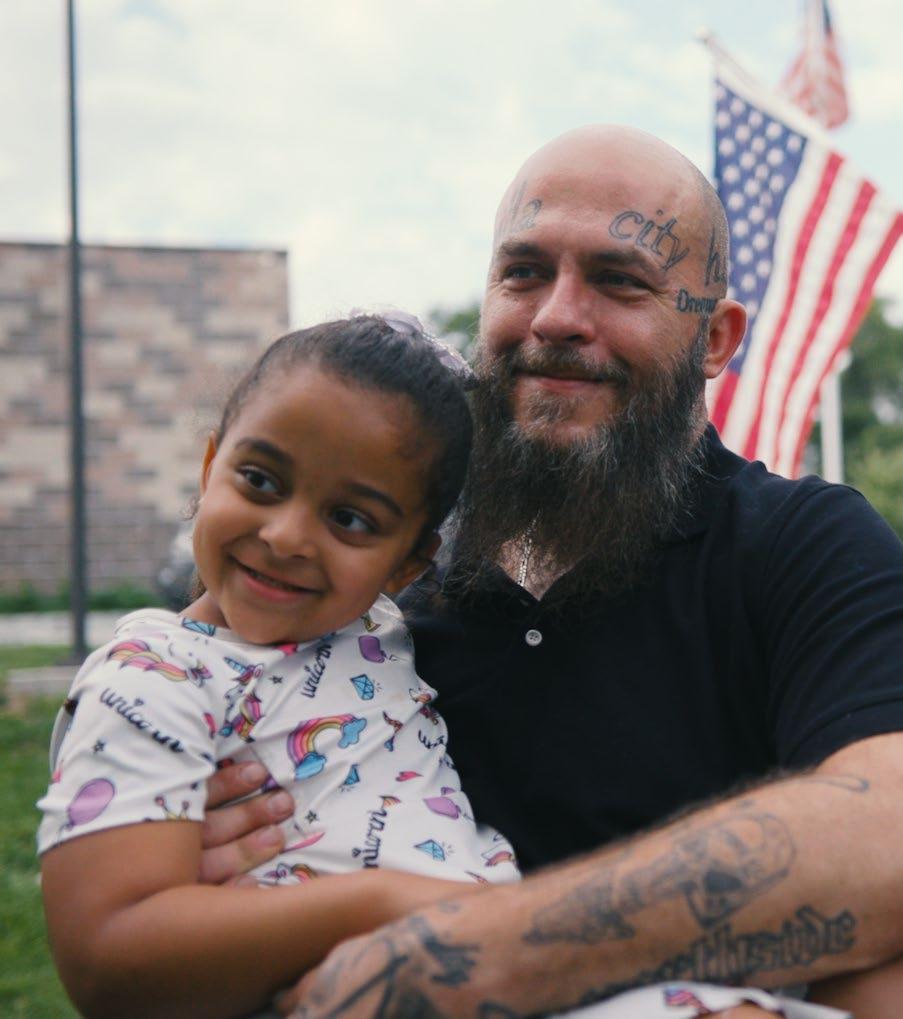
On any given night in America, more than 30,000 Veterans experience homelessness.
Tens of thousands more are unaccounted for, living in secluded camps, couch surfing, sleeping in cars, or hiding in plain sight. Shelters and other group living facilities often create more problems than solutions for many Veterans. PTSD-related anxiety and concerns about privacy, safety, and security can keep a Veteran in crisis mode, making it hard for them to problem solve and plan for the future.
The causes of homelessness are varied and complex, rooted in issues around unemployment, mental or physical health, substance abuse, a breakdown in support, and more, all contributing to a loss of basic human needs.
Veterans report experiencing homelessness at some point in their adult lives
20% of homeless males are Veterans
51% have service-related disabilities
50% are 51 or older with a large portion having served in Vietnam
U.S. VETERANS ARE 50%
more likely to become homeless than those who haven’t served in the military
Women are the fastest growing demographic of Veterans experiencing homelessness
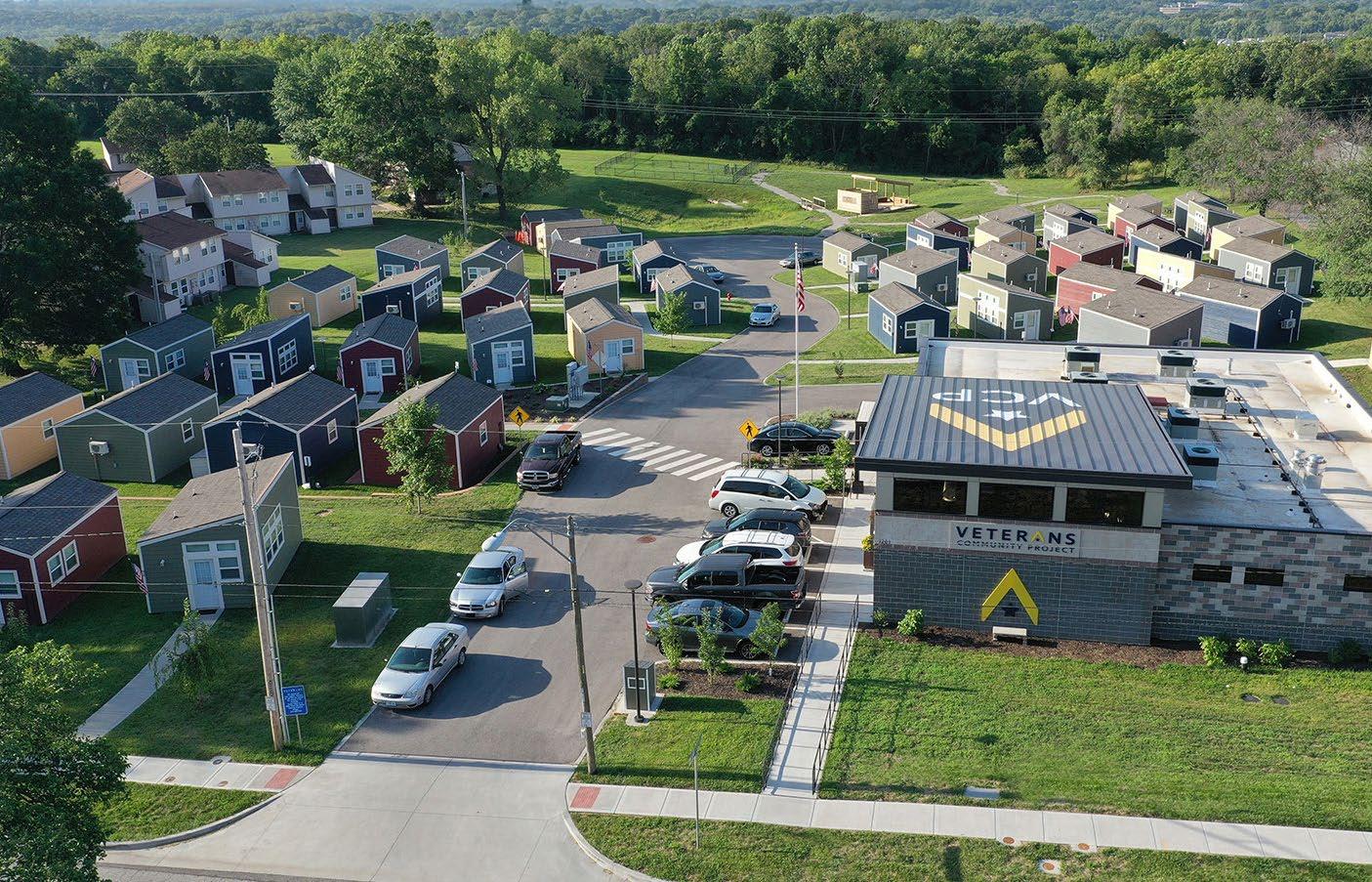
THE SOLUTION
Founded in Kansas City, Missouri, in 2016 by a group of combat Veterans shaped by their military service, Veterans Community Project began with a determination to do better for Veterans in need. Today, we’re growing nationwide to serve more Veterans everywhere, ensuring no one is left behind.
The Founders’ solution was simple: provide Veterans experiencing homelessness with a home of their own and wraparound case management services that leverage the support of the community to not only get them back on their feet, but ensure they continue standing.
VCP serves everyone who raised their hand and took the oath to protect this country with dignity, humility, and honesty, regardless of length or type of service, or discharge status.
Home means having loved ones, support, pets, and personal belongings. Home provides safety, security, and dignity. Our mission is to provide every Veteran with the dignity of home.
With your help, Veterans can find stable housing, receive critical support services, and have a chance to rebuild their lives with renewed hope.
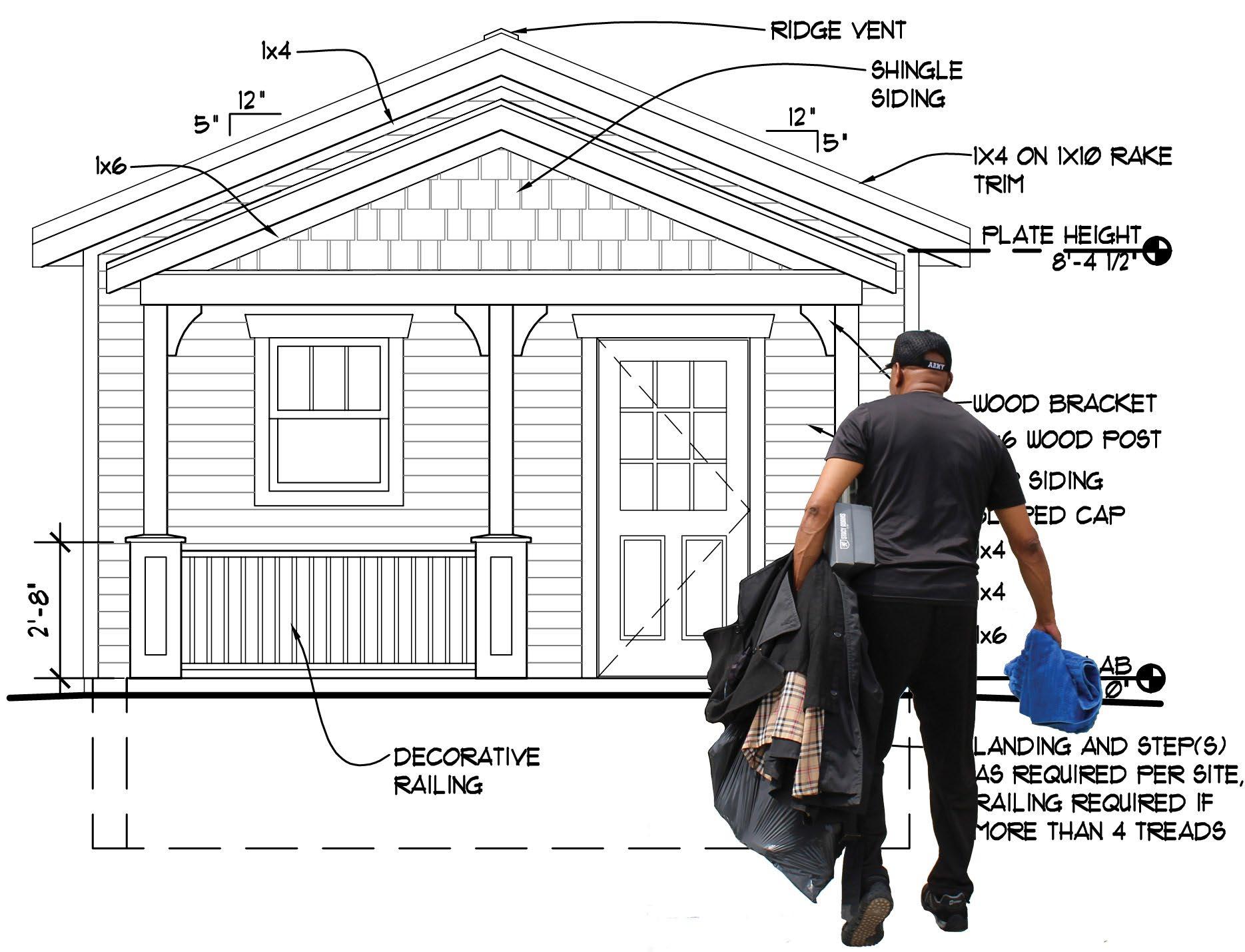
PROVIDING EVERY VETERAN WITH THE DIGNITY OF HOME
You can help us fix Veteran homelessness and address a critical infrastructure issue in America.
Here’s how we do it.
Dignity starts with a home, so we build Villages of studio homes, giving every Veteran “240 square feet of dignity.”
Dignity grows with a community, so we surround our Veterans with wraparound services and skills-training.
Dignity sustains in society, so we prepare our Veterans for reintegration and generations of change with a network of support.
When someone doesn’t have a home, it’s not just shelter that’s missing.
Without home, it’s harder to feel safe, harder to plan ahead, and harder to thrive. The simple routines many of us take for granted—like making a meal, having a quiet space to rest, or knowing where we’ll sleep each night—become uncertain. Without a home, the barriers multiply, making it harder to get back on your feet, to find stability, and to feel the warmth and safety that every Veteran deserves.
Without home, it makes it exponentially harder to:
Open a bank account
Buy a car
Get a loan
Apply for jobs
Provide care, support, and stability for children
How we serve Veterans differently:
We welcome Vets and their pets. We believe pets have a role in the recovery of many homeless Vets. Pets are often the first form of support for the Veterans we serve.
We innovate in several ways, including building family units with 320 square feet that can sleep 5-7 people, giving families a place to provide care, support, and stability for their children.
A Veteran is welcome to stay in the Village as long as needed if they continue to make progress toward their goal of permanent housing readiness with their case manager.
When a Veteran moves in to one of our homes, they step into a fully furnished space with appliances, furniture, pots, pans, towels, bedding, two weeks of groceries, and everything else they need to make the house feel like home.
When they move to their own permanent housing, they take it all with them, ensuring a fresh start with the essentials in place.
More than 50% of Veterans aren’t enrolled in the benefits they deserve, and most of the Veterans we meet at VCP are in this group.
Beyond providing a home, we connect every Veteran with a case manager to help them navigate difficult systems and get them the support they deserve. In one case, we helped a Veteran change their status with the VA, unlocking over $250,000 in back pay.
We connect Veterans with community services that make a difference, serving as a one-stop shop where they find not just a home, but vital connections to the resources they need. Collaboration, not competition, drives our partnerships as we work together to deliver comprehensive support. At VCP, we know that a strong connection to the community is essential for a Veteran’s long-term success, and we’re committed to building those connections.
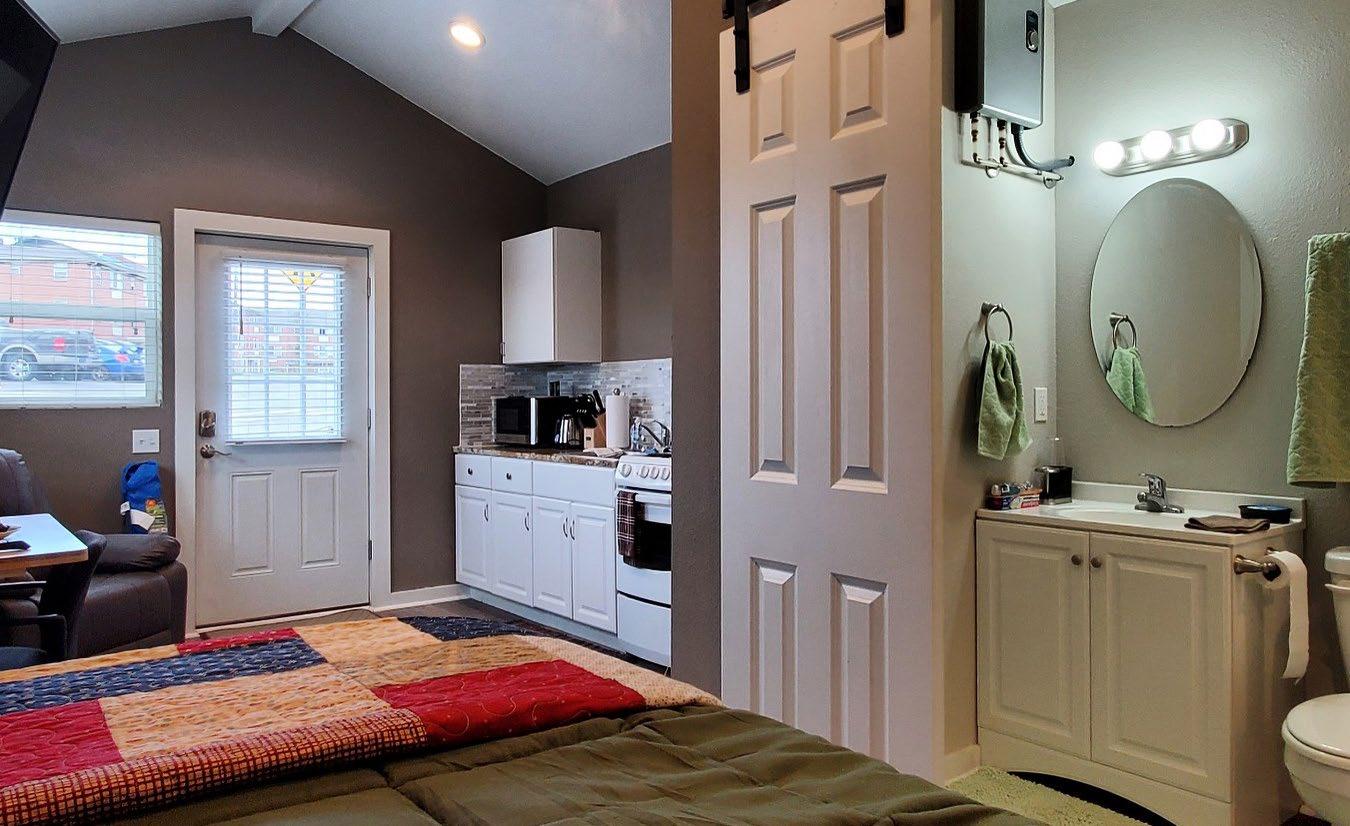
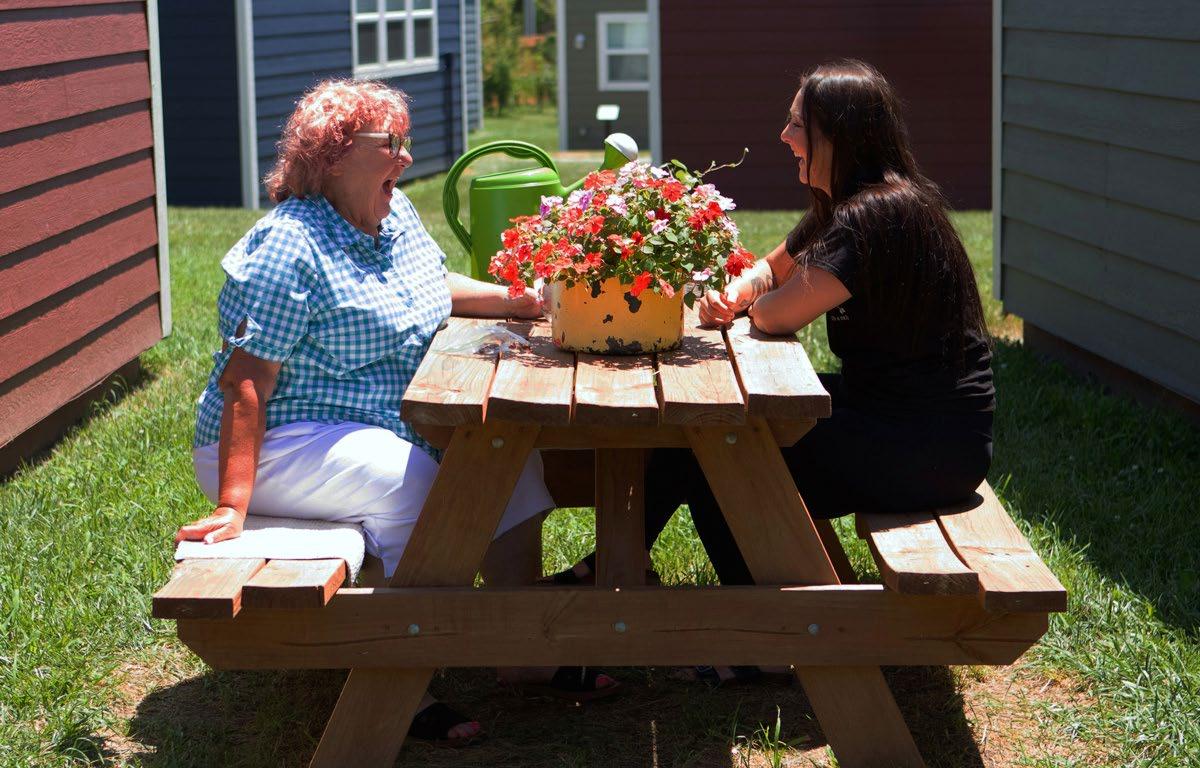
We retain a low case manager to Veteran ratio of 10:1 so that our Veterans can receive the personalized support they need to acheive permanent housing and regrow their network of support.
We believe every Veteran experiencing homelessness has a unique story and deserves personalized services and support.
We have a two-part process to get Veterans back on their feet. When they arrive they take our H.O.M.E.S. Index to determine their area(s) of most need, which include:
• Health and well-being
• Opportunity for education and training
• Money management
• Earnings and income stability
• Support network
Their score helps us create a clear plan for what needs improvement in the coming months. Every month, our residents retake the H.O.M.E.S. Index, and we track their progress which shows us who’s nearing their goals and will be ready for permanent housing.
Over the years, we have served hundreds of Veterans, each with a unique story. Our residents come from diverse backgrounds, ranging in age from 18 to 94. At intake, 30% are already employed. Every Veteran we meet has a different journey and has different needs, reinforcing the importance of personalized support.

Chris VCP Alumni
